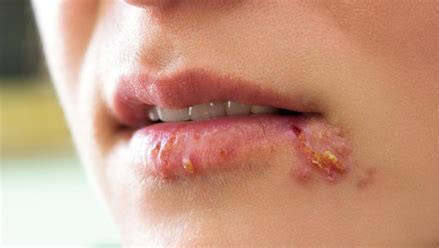Introduction: Herpes simplex virus (HSV) is a widespread viral infection that affects millions of individuals worldwide. According to the World Health Organization (WHO), an estimated 3.7 billion people under the age of 50 are infected with HSV-1 globally, with approximately 417 million people aged 15-49 living with HSV-2 infection. This article aims to provide an insightful overview of HSV, including its key facts, symptoms, treatment, transmission, complications, prevention measures, and the invaluable guidance provided by WHO.
Overview of HSV: HSV is a contagious virus that manifests in two main types: HSV-1 and HSV-2. While HSV-1 primarily causes oral herpes, characterized by cold sores or fever blisters, HSV-2 predominantly leads to genital herpes. However, both types can infect either area, blurring the lines between oral and genital infections.
Symptoms and Diagnosis: Symptoms of HSV infection vary but commonly include painful sores or blisters around the affected area, accompanied by itching and tingling sensations. Some individuals may also experience flu-like symptoms during the initial outbreak. Diagnosis typically involves physical examination and laboratory tests to confirm the presence of the virus.
Treatment Options: Presently, there is no cure for HSV. However, antiviral medications such as acyclovir, valacyclovir, and famciclovir are commonly prescribed to manage symptoms, reduce the frequency and severity of outbreaks, and decrease the risk of transmission. These medications can provide relief and improve the quality of life for individuals living with HSV.
Transmission and Prevention: HSV is highly contagious and spreads through direct contact with infected skin or mucous membranes. Transmission can occur through sexual contact, kissing, sharing utensils, or touching infected areas. Preventive measures include practicing safe sex, using condoms, avoiding direct contact with active lesions, and maintaining good hygiene. Pregnant women with a history of genital herpes should inform their healthcare providers to prevent neonatal herpes transmission.

Complications and Severe Disease: Complications of HSV include recurrent outbreaks and emotional distress. In rare cases, severe complications such as meningitis or encephalitis may occur, particularly in individuals with weakened immune systems, such as those with HIV/AIDS or undergoing chemotherapy.
Neonatal Herpes: Neonatal herpes is a rare but serious condition where newborn babies are infected with HSV during childbirth. This condition can lead to severe complications, including neurological damage or death, emphasizing the importance of preventive measures and proper management during pregnancy.
WHO’s Role and Guidelines: The World Health Organization plays a pivotal role in providing comprehensive information and guidelines on HSV, including prevention strategies, treatment options, and global epidemiology. WHO’s efforts contribute significantly to raising awareness, promoting education, and ensuring access to healthcare services for managing and preventing the spread of HSV.
Conclusion: Herpes simplex virus remains a significant public health concern globally, given its high prevalence, recurrent nature, and potential for severe complications. Understanding the key facts, symptoms, treatment options, transmission routes, and preventive measures is crucial in tackling the spread of HSV. Through collaborative efforts, education, and access to healthcare services, we can mitigate the impact of HSV and improve the quality of life for affected individuals worldwide.


